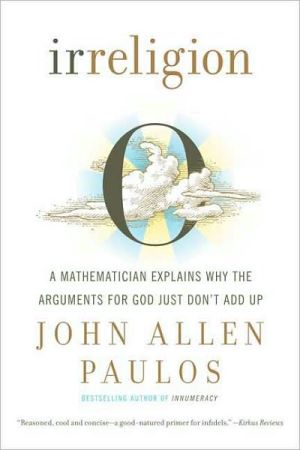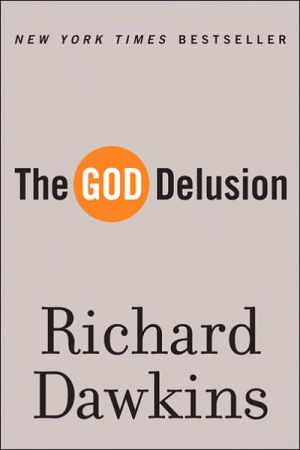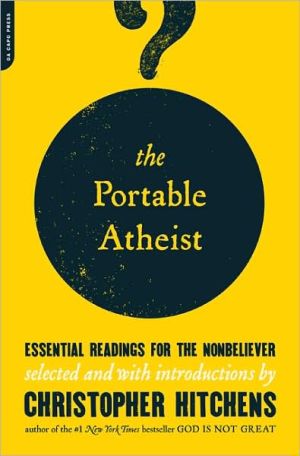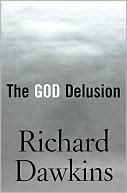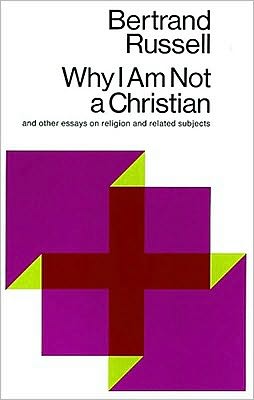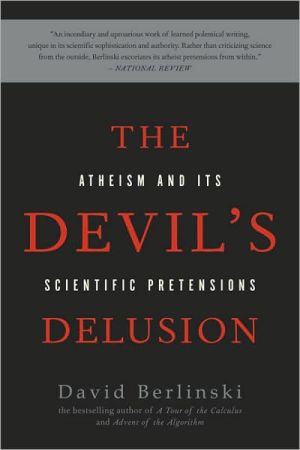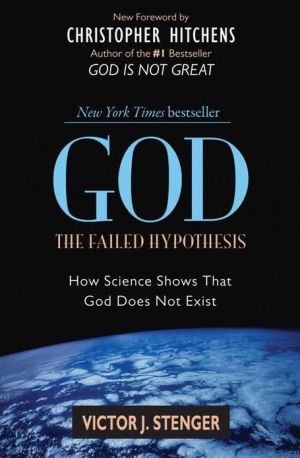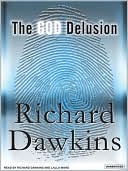Irreligion: A Mathematician Explains Why the Arguments for God Just Don't Add Up
Are there any logical reasons to believe in God? The mathematician and bestselling author John Allen Paulos thinks not. In Irreligion he presents the case for his own worldview, organizing his book into twelve chapters that refute the twelve arguments most often put forward for believing in God’s existence. Interspersed among these counterarguments are remarks on a variety of irreligious themes, ranging from the nature of miracles and creationist probability to cognitive illusions and...
Search in google:
Are there any logical reasons to believe in God? Mathematician and bestselling author John Allen Paulos thinks not, and in Irreligion he presents the case for his own worldview, refuting the twelve arguments most often put forward for believing in Gods existence. Publishers Weekly Few of the recent books on atheism have been worth reading just for wit and style, but this is one of them: Paulos is truly funny. De-spite the title, the Temple University math professor doesn't actually discuss mathematics much, which will be a relief to any numerically challenged readers who felt intimidated by his previous book Innumeracy: Mathematical Illiteracy and Its Consequences. In this short primer ("just the gist with an occasional jest"), Paulos tackles 12 of the most common arguments for God, including the argument from design, the idea that a "moral universality" points to a creator God, the notion of first causes and the argument from coincidence, among others. Along the way, he intersperses irreverent and entertaining little chapterlets that contain his musings on various subjects, including a rather hilarious imagined IM exchange with God that slyly parodies Neale Donald Walsch's Conversations with God. "Why does solemnity tend to infect almost all discussions of religion?" Paulos asks, clearly bemoaning the dearth of humor. This little book goes a long way toward correcting the problem, and provides both atheists and religious apologists some digestible food for thought along the way. (Jan. 3)Copyright 2007 Reed Business Information
Preface\ Are there any logical reasons to believe in God? Billions of people over thousands of years have entertained this question, and the issue is certainly not without relevance in our world today. The chasms separating literal believers, temperate believers, and outright nonbelievers are deep. There are many who seem to be impressed with the argument that God exists simply because He says He does in a much extolled tome that He allegedly inspired. Many others subscribe with varying degrees of conviction to more sophisticated arguments for God, while atheists and agnostics find none of the arguments persuasive.\ Such questions of existence and belief, if not the formal arguments themselves, have always intrigued me. I remember as a child humoring my parents when they discussed Santa Claus with me. I wanted to protect them from my knowledge of his nonexistence, and so I feigned belief. My brother, three years my junior, was only a baby, so it wasn’t him I was trying not to disillusion. My qualitative calculations had proved to me that there were too many expectant kids around the world for Mr. Claus to even come close to making his Christmas Eve rounds in time, even if he didn’t stop for the occasional hot chocolate. This may sound like quite a pat memory for the author of a book titled Innumeracy to have, but I do remember making rough “order of magnitude” calculations that showed that Santa Claus was way overextended.\ As I’ve written elsewhere, if there is an inborn disposition to materialism (in the sense of “matter and motion are the basis of all there is,” not in the sense of “I want more cars and houses”), then I suspect I have it. At the risk of being a bit cloying, I remember another early indicator of my adult psychology. I was scuffling with my brother when I was about ten and had an epiphany that the stuff of our two heads wasn’t different in kind from the stuff of the rough rug on which I’d just burned my elbow or the stuff of the chair on which he’d just banged his shoulder. The realization that everything was ultimately made out of the same matter, that there was no essential difference between the material compositions of me and not-me, was clean, clear, and bracing.\ My youthful materialism quickly evolved into adolescent skepticism, dismissive of just-so tales devoid of evidence. The absence of an answer to the question “What caused, preceded, or created God?” made, in my eyes, the existence of the latter being an unnecessary, antecedent mystery. Why introduce Him? Why postulate a completely nonexplanatory, extra perplexity to help explain the already sufficiently perplexing and beautiful world? Or, if one was committed to such an unnecessary mystery, why not introduce even more antecedent ones such as the Creator’s Creator, or even His Great-Uncle?\ This vaguely quantitative and logical mind-set no doubt predisposed me to choose the career I have—I’m a mathematician who’s morphed into a writer—and to view the world in the way I do. It is what has animated me to write the books and columns I’ve written, some of which have touched on what I call irreligion—topics, arguments, and questions that spring from an incredulity not only about religion but also about others’ credulity. As this and the above anecdotes suggest, I’ve always found the various arguments for the existence of God that I’ve come across wanting. There is an inherent illogic to all of the arguments that I’ve never dealt with head-on. Here in Irreligion I’ve attempted to do so.\ My approach in this book is informal and brisk (at least I hope it is), not ceremonious and plodding (at least I hope it isn’t). Interspersed among the arguments will be numerous asides on a variety of irreligious themes, ranging from the nature of miracles and creationist probability to cognitive illusions and prudential wagers. Beginning with a schematic outline of an argument, most chapters will briefly examine it and then present what I believe is a succinct deconstruction. The arguments considered range from what might be called the golden oldies of religious thought to those with a more contemporary beat. On the playlist are the first-cause argument, the argument from design, the ontological argument, arguments from faith and biblical codes, the argument from the anthropic principle, the moral universality argument, and others. These arguments overlap to an extent, but I’ve loosely categorized them in an order that seems somewhat natural.\ Don’t worry if your mathematical skills are rusty or even completely absent. Although I’m a mathematician, I’ve not included a single formula in the book. This doesn’t mean that mathematics plays little role in what follows. The subject enters in two ways. First, I invoke bits of logic and probability throughout the book, always taking pains in my expositions of them to avoid not only formulas but equations, complicated computations, and technical jargon. Second and more significant, mathematics, or at least my mathematical sensibility, reveals itself in the analytic approach, my choice of examples, and the distaste for extraneous details apparent herein. (Mathematicians are a bit like the laconic Vermonter who, when asked if he’s lived in the state his whole life, replies, “Not yet.”)\ Fully discussing the arguments for God and their refutations, together with the volumes and volumes of commentary and meta-commentary that they continue to generate, brings to mind the predicament of Tristram Shandy. He was the fictional fellow who took two years to write the history of the first two days of his life. In an effort to avoid Shandy’s fate and not lose the withered forest for the debunked trees, I’ve tried in this book—actually more of a handbook or a compendium—to sketch with a lightly heretical touch only the most trenchant refutations of the arguments for God. That is, just the gist, with an occasional jest. These refutations—some new and idiosyncratic, but many dating back centuries or even millennia—are not nearly as widely known as they once were, and therefore, I believe, there is value in having them all available in one place. (For this reason I’ve here adapted some sections from the other books and columns of mine that I mentioned above.)\ This effort is especially important now given this country’s rampant scripture-spouting religiosity and the policies and debacles to which it has already led and to which it may further lead. A representative of the Enlightenment, which, unfortunately, sometimes seems to be in the process of being repealed, Voltaire presciently observed, “Those who can make you believe absurdities can make you commit atrocities.” This dire forecast is all the more likely to come to pass when politicians and a substantial portion of a large political party are among the most effective purveyors of beliefs such as the “Rapture.” (On the other hand, I have little problem with those who acknowledge the absence of good arguments for God, but simply maintain a nebulous but steadfast belief in “something more.”)\ The first step in untangling religious absurdities is to recognize that the arguments for the existence of God depend on the definition of God. Who or what is God? Some authors write that He is ineffable or define Him in some idiosyncratic manner as synonymous with nature or with the laws of physics or in an indeterminate number of other ways.\ Most conventional monotheistic characterizations of God (Yahweh, Allah), however, take Him to be an entity or being that is, if not omnipotent, at least extraordinarily powerful; if not omniscient, at least surpassingly wise; if not the Creator of the universe, at least intimately connected with its origin; if not completely and absolutely perfect, at least possessor of all manner of positive characteristics. This formulation will, on the whole, be my definition of God, and the many flawed arguments for this entity’s existence will be my primary focus. Different traditions adorn Him with different narratives and attributes, but I’ll discuss neither these nor the broader cultures and attitudes associated with specific religions.\ An atheist I’ll take to be someone who believes that such an entity does not exist, and an agnostic I’ll take to be someone who believes that whether God exists or not is either unknown, unknowable, or a meaningless question. (I won’t discuss complex intermediate cases, represented in my mind by a friend who professes to being an atheist but, when asked why he adheres strictly to religious rituals, replies, “Because God commands it.”) Contrary to some, I think it’s certainly possible to be both an atheist and an agnostic. Think, for example, of the innumerable historical figures or events in whose existence or occurrence we don’t believe, but about whose existence and occurrence we’re not absolutely sure. The definitions of these terms are, of course, sensitive to the definition of God to which one subscribes. Define God in a sufficiently nebulous way as beauty, love, mysterious complexity, or the ethereal taste of strawberry shortcake, and most atheists become theists. Still, although one can pose as Humpty Dumpty and aver, “When I use a word, it means just what I choose it to mean, neither more nor less,” others needn’t play along.\ One question people interested in the matters discussed in this book often have is whether, despite my present views, I ever had or perhaps somehow still have a formal religion. There is, of course, a significant difference between the formal religion one is born into or with which one is otherwise associated and one’s true beliefs. There are many paths to an irreligious outlook, my own, as I’ve indicated above, being somewhat straightforward. I simply never had a religious phase. As a consequence, I am not now renouncing a faith I once had, and this book isn’t intended as a sort of Epistle of Paulos the Apostate to the Theologians. Although raised in a nominally Christian home (my grandparents emigrated from Greece) and ensconced now in a secular Jewish family, I never found either religion’s doctrines intellectually or emotionally palatable, much less compelling.\ This is not to say that I don’t value at least parts of some religious traditions, ideals, and festivals (ranging from Passover to Thailand’s Loy Krathong). Nor is it to say I don’t acknowledge that there have been untold people who have selflessly served others in the name of their God. Nor is it to say that I don’t recognize that many intelligent people are religious. I mean merely to say that I am and always have been an atheist/agnostic and will herein attempt to explain why perhaps you should be, too.\ Let me end these preliminaries by noting that although a nonbeliever, I’ve always wondered about the possibility of a basic proto-religion acceptable to atheists and agnostics. By this I mean a “religion” that has no dogma, no narratives, and no existence claims and yet still acknowledges the essential awe and wonder of the world and perhaps affords as well an iota of serenity. The best I’ve been able to come up with is the “Yeah-ist” religion, whose response to the intricacy, beauty, and mystery of the world is a simple affirmation and acceptance, “Yeah,” and whose only prayer is the one word “Yeah.” This minimalist “Yeah-ist” religion is consistent with more complex religions (but not with the “Nah” religion) and with an irreligious ethics and a liberating, self-mediated stance toward life and its stories. Furthermore, it conforms nicely with a scientific perspective and with the idea that the certainty of uncertainty is the only kind of certainty we can expect.\ So, Yeah, let’s move on to the arguments for God’s existence.\ Excerpted from Irreligion by John Allen Paulos. Copyright © 2007 by John Allen Paulos. Published in 2007 by Hill and Wang, a division of Farrar, Straus and Giroux, LLC. All rights reserved.
\ From Barnes & NobleIn Innumeracy, John Allen Paolos staked out the ill consequences of mathematical illiteracy. In A Mathematician Reads the Newspaper, he explained how an understanding of numbers has benefits far beyond the stock market pages. In Irreligion, this lifelong unbeliever examines and refutes 12 prevalent arguments for the existence of God. Paulos's arguments are cogent without being pedantic; in fact, he generally maintains the same supple lightheartedness that has made his previous books so popular. A stimulating addition to a debate that won't end here.\ \ \ \ \ Publishers WeeklyFew of the recent books on atheism have been worth reading just for wit and style, but this is one of them: Paulos is truly funny. De-spite the title, the Temple University math professor doesn't actually discuss mathematics much, which will be a relief to any numerically challenged readers who felt intimidated by his previous book Innumeracy: Mathematical Illiteracy and Its Consequences. In this short primer ("just the gist with an occasional jest"), Paulos tackles 12 of the most common arguments for God, including the argument from design, the idea that a "moral universality" points to a creator God, the notion of first causes and the argument from coincidence, among others. Along the way, he intersperses irreverent and entertaining little chapterlets that contain his musings on various subjects, including a rather hilarious imagined IM exchange with God that slyly parodies Neale Donald Walsch's Conversations with God. "Why does solemnity tend to infect almost all discussions of religion?" Paulos asks, clearly bemoaning the dearth of humor. This little book goes a long way toward correcting the problem, and provides both atheists and religious apologists some digestible food for thought along the way. (Jan. 3)\ Copyright 2007 Reed Business Information\ \ \ Kirkus ReviewsAdd this impious brief to the growing stack of earnest texts by atheists set on debunking the venerable notion of an omnipotent, omniscient Almighty. The old-time religion wasn't good enough for Epicurus or, more recently, for infidels Richard Dawkins, Christopher Hitchens and others. And it isn't good enough for Paulos (Mathematics/Temple Univ.; A Mathematician Plays the Stock Market, 2003, etc.). Heedless of the First Commandment, but not necessarily unmindful of other parts of the Ethical Decalogue, he explains in his brief manifesto why he belongs to the apparently burgeoning congregation of the seriously dubious. First, he assaults some classic arguments: anthropic, teleological and first cause. Next, he demolishes such subjective justifications for the Deity as coincidence, prophecy, emotion, unexplained phenomena and just plain faith. Finally, he deploys the nonbelievers' philosophical-mathematical methods, dispensing theoretical and metaphysical algorithms with as light a touch as such weighty material can handle. Though Paulos promises no heavy math, many passages will be most meaningful to mathematically minded readers. Throughout, he demonstrates the foolishness of blind faith using seriously defective syllogisms constructed with flawed religious premises. Straw men are demolished with ease. Though even Mother Teresa may have had doubts, such proof is not likely to convert pious readers to the heretics' cause. Paulos is preaching, naturally, to the choir. He has, thank Someone, considerable wit. He wonders why folk who abhor the notion of evolution are not bothered by the biblical claim that we come from dirt, and he ponders the source of Jesus's DNA. In the beginning, he asksif there is any logical reason for belief in God. But in the mind of the faithful, logic, no matter how persuasive, has little to do with it. Paulos is speaking a different language. Reasoned, cool and concise-a good-natured primer for infidels. Agent: Rafe Sagalyn/The Sagalyn Agency\ \
